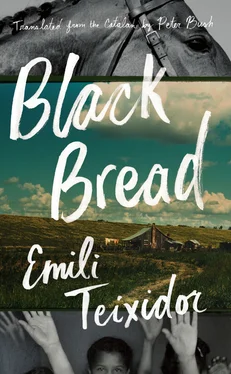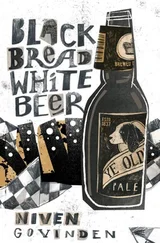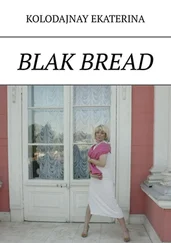I shook my head. A doctor? Perhaps I did once say that, I expect under the influence of the mystery of Saint Camillus, the young man with TB and the superior manners of elegant, affable gentlemen, the doctors I’d met in town. However, I now felt quite differently, I was now beginning to feel the bitter taste of hatred I’d discovered at the Novíssima, although less intensely, though I knew I could stir up that inner fire now fuelled by Mother’s words. I didn’t want to, the need to do justice to my mother prevented me, but it made it crystal clear that I must distance myself from her if I didn’t want her to infect me with the filth of poverty. Even though I didn’t like books and found studying hard, I would clear off so I could find work elsewhere, far away, where the annoying, flattening fumes that reduced me to zero couldn’t floor me.
“You must get used to the idea that they are like godparents. I think their idea later is to see if they can get you into the Seminary, they’re the people who’ve given most for the new building…but that’s because they’re so pious — and reputed to be sanctimonious — it would seem odd if they didn’t try to hook you into all that, apparently they are already the religious godfathers of two or three seminarians, but don’t worry your head about that, make the most you can of your schooling and when you see where you’re heading, we can talk again.”
“They never mentioned the Seminary to me.”
“No, I’m the one telling you. You’ll live with them, in their house, and they’ll send you to a good school… the Escolapians of Mercy, they said, for your secondary education.”
“I thought it was going to be Saint Michael’s, everyone goes to Saint Michael of the Saints, in Vic.”
My mother looked taken aback.
“St. Michael’s? No, the Escolapians are in Igualada. Mr. and Mrs. Manubens have had a mansion built on the city outskirts, and that’s where they’re going to live, if they haven’t already. They own a knitting factory there that’s going very well, it’s what brings them the most money now, much more than their farms, and they want to extend the business, Napkin Lolita told me. So you thought it would be Vic? Perhaps they said Vic so as not to panic you, because that would be closer to home.”
I nodded. I didn’t know whether to be overjoyed or disappointed by the latest news. I hadn’t a clue where Igualada was, but I didn’t feel disappointed. I had decided to leave, to go wherever. I started to be intrigued by this unknown city.
“Igualada isn’t very far, but there’s no direct train, you have to go to Barcelona and catch a train in another station, they’re not the same trains from Puigcerdà, it’s another company. I don’t know what it’s called.”
I stiffened my resolve, looked her straight in the eyes and said: “Yes.”
Mother seemed mightily relieved.
“Are you sure? You’re not doing it for my sake? I told you I didn’t mind one way or the other.”
I nodded once again. What else did I have to say for her to understand that I accepted the deal and wanted out.
Then she got up, went over to the sink and poured out a glass of water. She walked back to the table with the glass and placed it in front of me as if I’d asked her for it.
“Drink this,” she said. “Your throat’s dry and you’re finding it hard to swallow.”
I took the glass, reacting mechanically, and downed it in one gulp.
“You see?” she said, removing the dirty glass. “Now we’ll go and tell Aunt Ció and Grandmother what you’ve decided. They’ll be so delighted.”
From the moment everybody found out I’d accepted Mr. and Mrs. Manubens as my godparents, they all started to treat me differently. Initially I thought I was imagining that, because the decision I’d taken to distance myself from the world I’d known to that point made me more of a loner, a more reflective, self-absorbed individual, as if I’d been branded with a distinguishing mark or was surrounded by the luminous aura I’d seen in religious prints of the saints or God’s chosen.
However, they were looking at me differently. The comments they made on any matter whatsoever seemed to touch on the issue directly or indirectly: “Eat well, we don’t want the masters to think we’ve taught you to be fussy,” “Don’t dirty your hands, that’s not the kind of work for you,” or “Keep your clothes tidy, we don’t know what you’ll have to take or if you’ll need new outfits,” and so on. Even Quirze, who’d never put himself out over anything, now tried to take on the hardest jobs when we had to work together, and Cry-Baby, who already seemed to be living in a different world, when she found out we’d not be seeing any more of each other when the new school year began, dragged me along to play among the hazel trees more often, and our encounters in the deep shadows from the leaves and green hazels were more sensitive — Grandmother always said “sensitive” when something moved her deeply or she said “he’s very sensitive” when she spoke of someone who was deeply affected by life’s adversity or spiteful remarks made by others — as if our first play and tentative explorations had been transformed into profound interpenetration, total trust, a much more intense emotion than the contact between our bodies. She continued to offer herself passively, as if she’d lost her will or was daydreaming, but she responded to everything I initiated, coupled into my movements and reacted to my every gesture, eyes closed and a loving smile on her face.
In the language of the playground — the only first-hand information we had about sexual matters — when a boy ejaculated for the first time they called it “spurting,” “he’s spurting now,” they’d say, and they’d said “she’s butterflying” for the girls’ arousal, and we extracted unambiguous expressions from the adult conversations between Uncle Bernat and the hands or seasonal labour that filled the house at harvest and threshing time, like “going to give the reed a squeeze” or “rubbing the sparrow” or “carding,” or “he’s well juicy” and many others my schoolmates brought from their respective hamlets. In the velvety shade of the hazel trees, we tried out all the actions suggested by the words that had come to us in an obscene, partial, or rather laboured manner, and with my cousin they became beautiful, serene acts with no sense of guilt, the naturalness of the pleasure erasing any shadow of sin or remorse, they were simply games, experiments, childish experiences and tentative moves that gradually brought us close to the bodily knowhow displayed by grownups, which we would have to master one day.
We also realized that our games were ephemeral, involved no commitment or consequence, and could stop at any moment, just as the wind changes, depending on the other’s mood or taste and that made them more intense and enjoyable, because each game might be the last.
However, during that final summer on the farm, Cry-Baby played our games more passionately and I thought she gave herself up to them with real enjoyment, despite her inertia. It was unconditional, absolute surrender, and that offering in itself satisfied me, after the first moments of mutual exploration. I wondered what else the world of grownups might hold in their adult bedrooms, if I felt we’d already exhausted the content of all the words we knew.
Sometimes, before or after entering our grotto of hazel tree branches, we’d look over the wall around the heartsease garden, to see whether the ill young men were sunbathing on the grass. Depending on the time of day, they’d not yet come or had already gone. When I saw them, I breathed more energetically, as if the air rushing to my lungs was reinvigorating, and the sight of the naked boy brought on a feeling of fulfilment I’d never experienced before. When I was hugging Núria I forgot everything, but there was always a fissure momentarily occupied by that frail, astonishingly beautiful figure, that found strength in its own defencelessness, exactly like my cousin, and the more vulnerable, exposed and helpless he seemed, the more powerfully he struck me, as if his cure, his very life depended on me, exactly what it felt like with Cry-Baby.
Читать дальше












